
Filter News
Area of Research
- (-) Biology and Environment (43)
- (-) Clean Energy (133)
- (-) Energy Sciences (1)
- (-) Fusion and Fission (31)
- Advanced Manufacturing (8)
- Building Technologies (2)
- Computational Biology (1)
- Computational Engineering (1)
- Computer Science (8)
- Electricity and Smart Grid (1)
- Fuel Cycle Science and Technology (1)
- Functional Materials for Energy (1)
- Fusion Energy (13)
- Isotope Development and Production (1)
- Isotopes (4)
- Materials (48)
- Materials for Computing (9)
- National Security (26)
- Neutron Science (18)
- Nuclear Science and Technology (39)
- Nuclear Systems Modeling, Simulation and Validation (2)
- Quantum information Science (1)
- Sensors and Controls (1)
- Supercomputing (72)
- Transportation Systems (2)
News Topics
- (-) Advanced Reactors (9)
- (-) Artificial Intelligence (16)
- (-) Exascale Computing (7)
- (-) Nuclear Energy (30)
- (-) Security (7)
- (-) Sustainable Energy (96)
- (-) Transportation (67)
- 3-D Printing/Advanced Manufacturing (80)
- Big Data (14)
- Bioenergy (65)
- Biology (79)
- Biomedical (21)
- Biotechnology (16)
- Buildings (36)
- Chemical Sciences (21)
- Clean Water (19)
- Climate Change (58)
- Composites (19)
- Computer Science (42)
- Coronavirus (22)
- Critical Materials (10)
- Cybersecurity (9)
- Decarbonization (48)
- Energy Storage (75)
- Environment (137)
- Fossil Energy (2)
- Frontier (6)
- Fusion (22)
- Grid (41)
- High-Performance Computing (24)
- Hydropower (9)
- Isotopes (3)
- ITER (6)
- Machine Learning (14)
- Materials (39)
- Materials Science (31)
- Mathematics (5)
- Mercury (10)
- Microelectronics (1)
- Microscopy (16)
- Molten Salt (1)
- Nanotechnology (12)
- National Security (7)
- Net Zero (6)
- Neutron Science (15)
- Partnerships (13)
- Physics (3)
- Polymers (12)
- Quantum Science (2)
- Renewable Energy (2)
- Simulation (20)
- Space Exploration (4)
- Statistics (1)
- Summit (13)
- Transformational Challenge Reactor (3)
Media Contacts
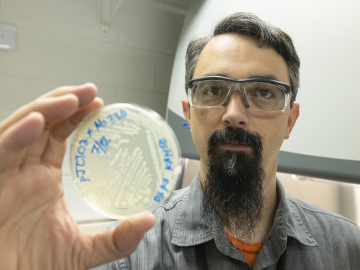
A DNA editing tool adapted by Oak Ridge National Laboratory scientists makes engineering microbes for everything from bioenergy production to plastics recycling easier and faster.
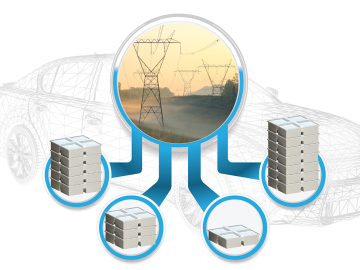
When aging vehicle batteries lack the juice to power your car anymore, they may still hold energy. Yet it’s tough to find new uses for lithium-ion batteries with different makers, ages and sizes. A solution is urgently needed because battery recycling options are scarce.
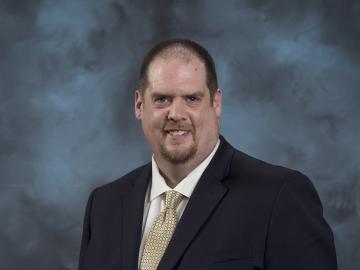
Jeremy Busby has been named associate laboratory director for the Fusion and Fission Energy and Science Directorate at the Department of Energy’s Oak Ridge National Laboratory, effective Jan. 1.

The Oppenheimer Science and Energy Leadership Program has selected Oak Ridge National Laboratory’s Jens Dilling and Christian Petrie as fellows for its 2023 cohort.
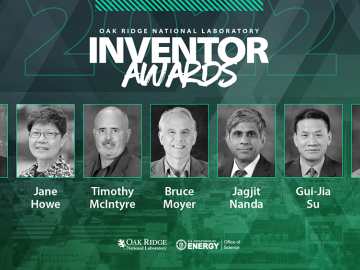
Seven scientists at the Department of Energy’s Oak Ridge National Laboratory have been named Battelle Distinguished Inventors, in recognition of their obtaining 14 or more patents during their careers at the lab.
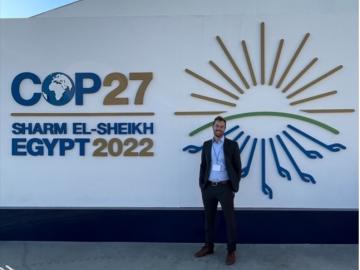
David McCollum, a senior scientist at the ORNL and lead for the lab’s contributions to the Net Zero World Initiative, was one of more than 35,000 attendees in Egypt at the November 2022 Sharm El-Sheikh United Nations Framework Convention on Climate Change, or UNFCCC, Conference of the Parties, also known as COP27.
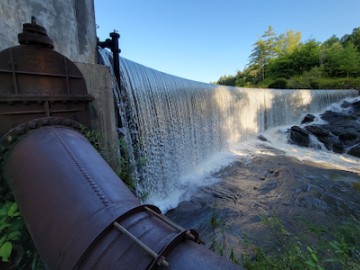
Researchers at Oak Ridge National Laboratory have identified a key need for future hydropower innovations – full-scale testing – to better inform developers and operators before making major investments.
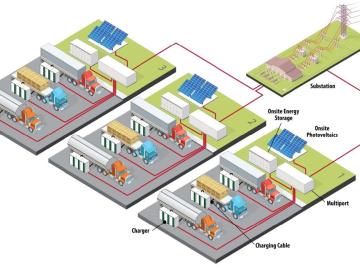
Researchers at Oak Ridge National Laboratory have designed architecture, software and control strategies for a futuristic EV truck stop that can draw megawatts of power and reduce carbon emissions.
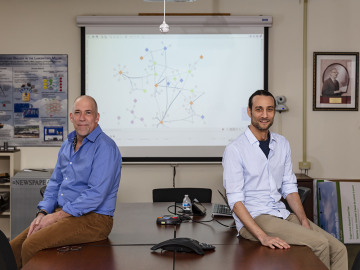
ORNL researchers discovered genetic mutations that underlie autism using a new approach that could lead to better diagnostics and drug therapies.
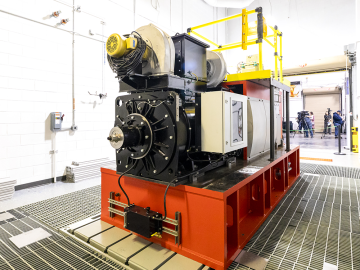
As the United States shifts away from fossil-fuel-burning cars and trucks, scientists at the Department of Energy’s Oak Ridge and Argonne national laboratories are exploring options for another form of transportation: trains. The research focuses on zero-carbon hydrogen and other low-carbon fuels as viable alternatives to diesel for the rail industry.


